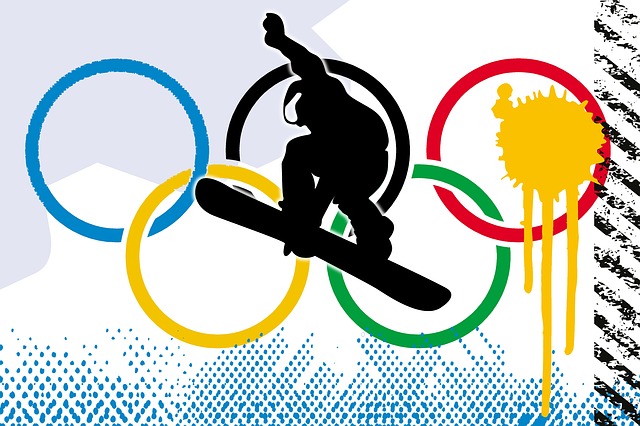by Ira H. Silverman
When I was growing up on Long Island in the ’50s and ’60s, my parents always told me that if I ever found myself in a room filled with people I didn’t know, the two subjects that I should never bring up were politics and religion.
So what do you talk about with someone you might want to get to know? Gradually, I came to understand that talking sports breaks the ice in almost any situation and helps ease conversation and make new friends.
For me it was a natural. I had a passion for sports and knew a lot about the subject. And my inclination was validated when I read that one of the great chief justices of the U.S. Supreme Court, Earl Warren, agreed. He told Sports Illustrated, “I always turn to the sports section first. The sports page records people’s accomplishments; the front page nothing but man’s failures.”
During my 40-plus years in the communications business. I have done PR, promotions, marketing and athlete representation that involved more than 60 different sports and games. So I could always find one sports subject or another, regardless of the size and composition of a group, that would resonate with whomever I tried to start a conversation.
Yet, I readily admit that I haven’t found too many people interested in talking about some of the sports I promoted, like caber tossing, wallyball, zoneball or 18-foot Chinese dragon boat racing,
But here we are with a memorable Super Bowl behind us, in the middle of basketball and hockey seasons, golf tournaments, and tennis matches underway, baseball season around the corner, and at the beginning of the Winter Olympics. All of these games give us a lot to talk about and an easy way to start a conversation with new people.

“Talking sports is an ice breaker no matter where you are,” she says. “You don’t have to know the person next to you to get into a conversation about that. I’ve always contended that women who talk sports and are knowledgeable about sports get instant respect and attention in a roomful of guys. Take it from me. It works!”
Arnie “Tokyo” Rosenthal, a songwriter, musician, recording artist and author, recently shared this story with me: “I was on line in a drug store a short time ago and a man came up behind me wearing a Red Sox hat. I simply asked him how he thinks his team will do this season, and we were off to the races. My initial sports question quickly led to a conversation about where we both grew up, our visits to our respective hometown ballparks and other facts about our lives. In 10 minutes it was as if we knew each other our entire lives. All because of a baseball hat. Sports is the universal language!”
Does this mean you need to know the language of a particular sport? Do you need to know what “love” means in tennis, what a “bogie” means in golf or what a “turkey” means in bowling? Honestly, it helps. But you probably know a lot of other things about sports.
Most people do know what tailgating, sports bars and Buffalo wings are.

Long Island event planner Cindy Mardenfeld laughs, “I am not a sports person, but I do enjoy the socialization around the sports events. I have been to the US Open, Belmont and opening day for the Mets several times, but that is only because they are such huge networking events. If someone would start a conversation with me about one of these events and ask what I thought was the most memorable thing about it, my answer would likely focus on the food, vendors, décor and weather. Since I plan events, those are the things I tune into the most.”
So how do you tune in, if you’re like Cindy and not really naturally interested? Free apps from ESPN, AP Mobile, from the teams, from the leagues, from almost every network give you an easy way to check in. Twitter and Facebook also help. Just look at what’s trending.

Sportswriter Melissa Ludtke now co-produces “Touching Home In China. When she worked as a reporter for Sports Illustrated, in 1978, she sued successfully for the right to interview players in baseball locker rooms.

She says, “As a woman, sports is a fine cocktail talk ice-breaker, but that’s because I am steeped in sports, then and now, and know how to talk with guys about sports. But a lot of women don’t like talking sports like men do, and when they do talk sports they do so in ways that are often different from men’s talk. I notice that women like talking about the athletes who play sports and men often like to talk about what the athletes do (or have done) in games — more about their accomplishments on the field than much about their lives either as athletes or off the field.”
But that’s still talking about sports and it definitely provides a way to ease into conversation.
Sports publicist, writer and Yankee historian Marty Appel takes it one step further. “Talking about the weather doesn’t take more than four sentences unless you are a meteorologist. But sports offers the potential for lengthy conversations, whether discussing the fate of today’s teams, the broadcasters, the facilities or memories. It’s generally impossible to politicize the conversation, and in this era, that is a welcome relief.”
So my suggestion for the next time you are getting ready to leave your home to head out to a party or have a drink at a bar, take a time-out. Switch from CNN, Fox News or MSNBC to ESPN or ESPN2, or check out one of the many mobile apps that give you up to the minute sports results and stories. That’s where you will find the winners.
 Ira H. Silverman is a sports publicist and writer known as “The Connector.”
Ira H. Silverman is a sports publicist and writer known as “The Connector.”




